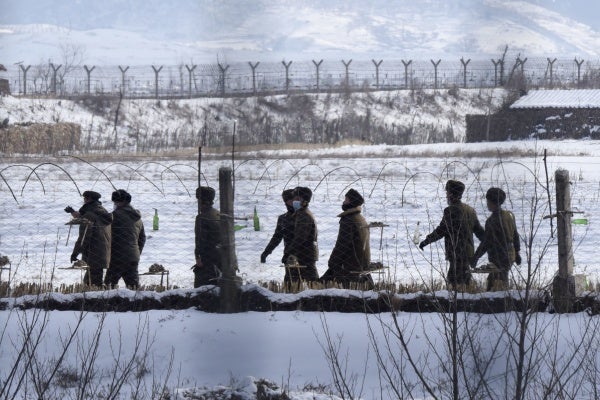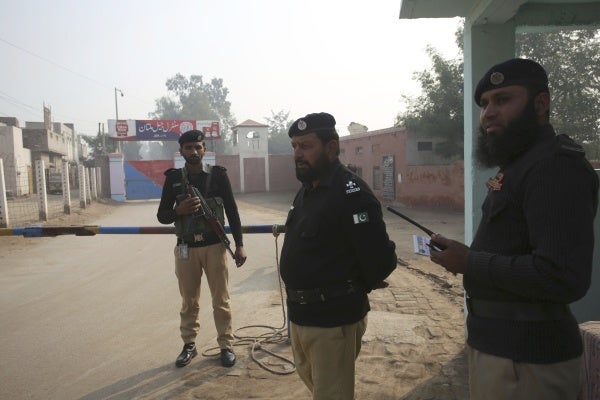Lire la version en français / Hier die deutsche Ausgabe lesen
For most of the world, restrictions put in place during the Covid-19 pandemic are a distant memory.
In North Korea, however, key pandemic-related restrictions are still in place – and it’s making people’s lives even more miserable in the hellscape of the so-called “Democratic People’s Republic.”
Specifically, this is about restrictions on movement and trade. In 2020, as the global pandemic raged, North Korea’s government largely sealed its border with neighboring China. It imposed excessive and unnecessary quarantines and new restrictions on economic activity and freedom of movement.
These measures have severely undermined food security in the country. Previously, many products North Koreans needed to survive entered the country from China through formal and informal trade routes. The Covid-related restrictions have worsened the already grave humanitarian and human rights situation in the country.
UN Security Council sanctions from 2016 and 2017, which limited most exports and some imports, add to the difficulties. The intention of the sanctions may have been to try to push the North Korean government to moderate some of its more unhinged geopolitical actions.
However, the sanctions have had the unintentional effect of hurting ordinary North Koreans. Their economic impact has harmed people’s ability to make a living and access food and essential goods.
In a sense, people are caught between the hammer of an extremely abusive government and the anvil of an international community, which is so frustrated with the totalitarian regime in Pyongyang, tries policies that have unintended consequences for long-suffering, ordinary North Koreans.
But while the UN Security Council should certainly review current sanctions on North Korea and their impacts, let’s be clear: the primary problem is the government, one of the most repressive in the world. Even before Covid-19 restrictions were put in place, North Korea was among the most authoritarian and isolated countries anywhere.
Ultimately, easing the hardships ordinary North Koreans face would take some serious policy reversals from North Korean dictator Kim Jong Un: reopening the borders for trade, relaxing internal travel restrictions, and allowing monitored international emergency assistance. In short, he should end all these “policies that have essentially made North Korea a giant prison.”
Just scrapping the pandemic-related restrictions would be a start. It is 2024, after all, so it’s long overdue.









